Interior 3D rendering is now taking the world of visualization by storm. It replaces conventional images, 2D renderings, and basic floor plans with more photorealistic and almost lifelike renderings.
These days, both marketing agencies and real estate developers are exploiting the perks and benefits of interior 3D renderings. It is one of the strongest and most powerful tools for marketing.
But before you decide to look for a rendering artist who can come up with your interior visualization, it is essential to be familiar with the primary components that determine the cost of interior 3D renderings.
 Table of Contents
Table of Contents
- Interior 3D rendering rates – Key factors
- 1. Additional features
- 2. Aesthetic
- 3. Number of corrections
- 4. Custom textures and elements
- 5. Deadline
- 6. Interior style
- 7. Labor cost
- 8. Level and amount of detailing
- 9. Number of details in the project brief
- 10. Number of views
- 11. Size of the project
- 12. Quality
- 13. Rendering environment
- 14. Number and size of orders
- 15. Expertise and skills of the 3D artist
- 16. Technical infrastructure and software cost
- 17. Specifics of the room
- 18. Number of images
- 19. Number of décor and furniture pieces
- 20. Simplicity or complexity of the project design
- 21. Time spent on the project
- The bottom line
Interior 3D rendering rates – Key factors
1. Additional features
The additional features are those things that are not commonly a part of the project contract for interior visualization. Good examples are visually interactive visuals, complete ambiance, or even bird’s eye view animations. These extra features can significantly boost the effectiveness of your interior visualization.
However, these add-on features are not always easy and straightforward to implement. This means that your 3D rendering team will need to be increased if more labor, skills, and experience are required to complete the project on time. Thus, it is to be expected that these extra features will also come at a higher cost. If you are on a tight budget, you might want to consider it before requesting additional features.
But just because you have a high budget doesn’t mean that the results will automatically be effective. On the other hand, a business can benefit from a low-budget visualization. Everything is just a matter of strategy here. This is why it is necessary to identify the elements you want to prioritize and those you are willing enough to compromise on.
If you are unsure or clueless about how to align your interior visualization project, don’t hesitate to discuss it with your prospective 3D artist. These professionals have more knowledge and familiarity with this area than anyone else. Therefore, you can count on them to give you some helpful hints and tips for your project.
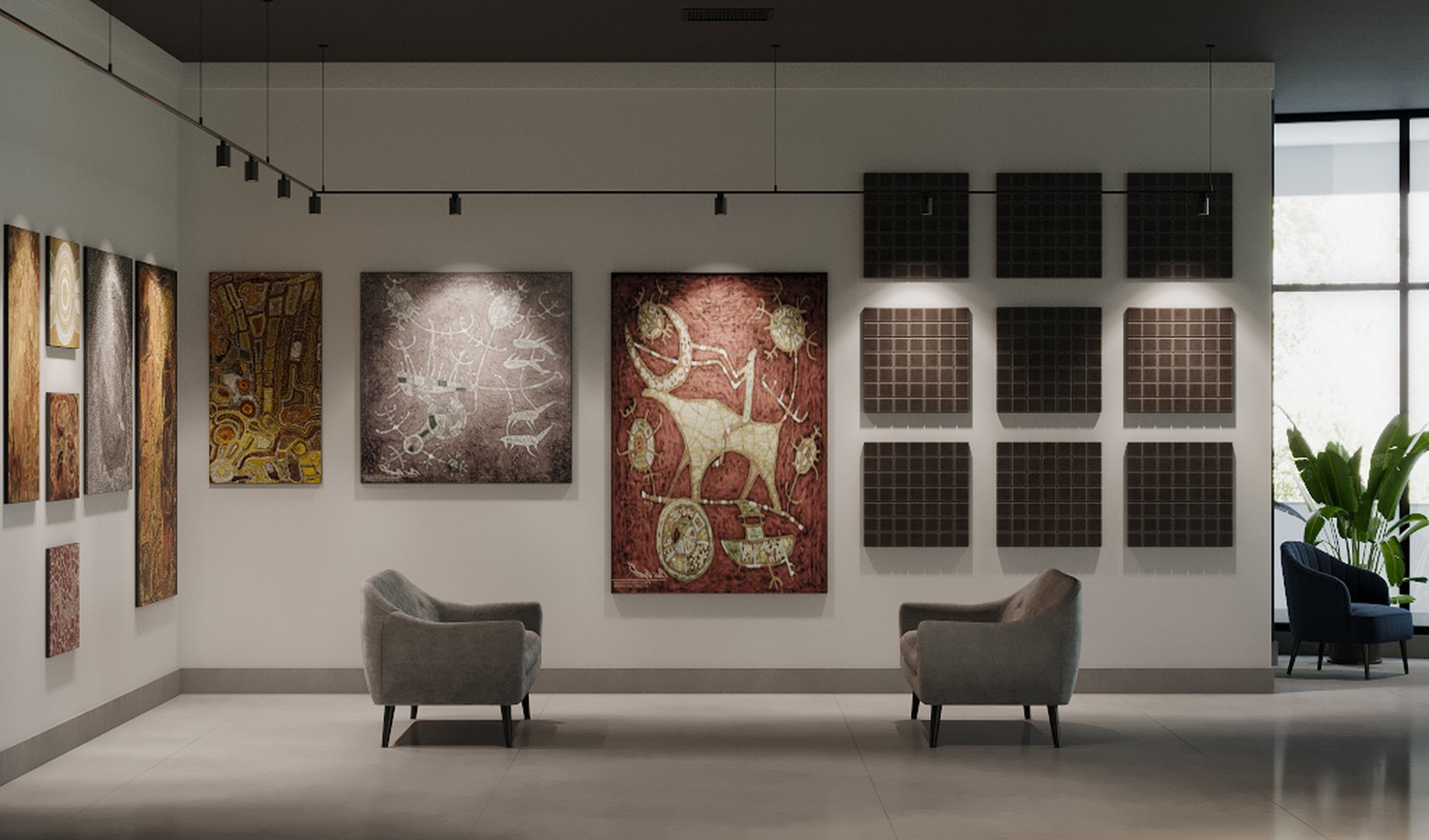
2. Aesthetic
Another extremely crucial aspect of interior 3D rendering is aesthetic styling. Rendering the images should be completed while considering the specific design theme and location of the particular house or building construction.
For instance, while working on the rendering project, the artist needs to adapt a few things. This includes appropriate furniture style, the kinds of flooring, the colors to be used on the walls, and more. These styles and furnishings can be complicated, and as a result, the interior rendering will have a higher cost than a simple average rendering. The aesthetics can be classic, contemporary, and so on.
RELATED: Tips for 3D rendering with photorealistic results at your firm
3. Number of corrections
The number of corrections is another factor that can influence the project’s price. As you might expect, these adjustments or tweaks are a critical aspect of the interior 3D rendering process. These updates and changes are essential to achieve the best result to fulfill the client’s demands.
Some 3D rendering studios indicate the exact number of corrections that will be part of the cost. For example, if the number of corrections doesn’t go beyond 60% percent of the size of the project, the initial price will remain the same.
On the other hand, if there are many corrections and the number exceeds the set limit, the project’s cost will be adjusted accordingly.
4. Custom textures and elements
A professional 3D rendering company usually has available resources and sample elements, like components, lights, and textures. Using these existing templates can help you save money and time on your project.
But sticking with these premade templates may also affect the uniqueness and exceptionality of your rendering. Some real estate companies will also need extra customization factors to guarantee authentication.
Some clients prefer all render elements to be unique and customized, from the flowers in the vases to the table legs. In cases like this, the 3D artist will have to develop all these items from scratch, which can further add to the total cost of the service.
The complexity of the features can also affect the price of interior 3D rendering. When the interior components are made from certain rare materials that the 3D company doesn’t have in their library or can’t find from other sources. This means the artists have no choice but to develop them from scratch.
If the textures are more complex, it is only to be expected that the 3D artists will also have to spend more time creating them, which makes the cost escalate accordingly.
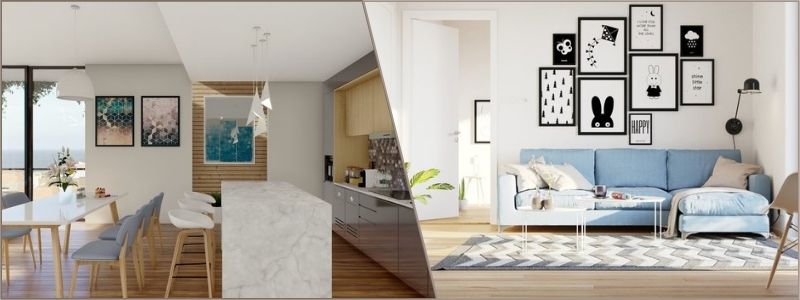
5. Deadline
Timing is another crucial factor that can impact the overall cost of interior 3D rendering. If the deadline is not crucial and there is no rush on the part of the artists, you can pretty much expect that you will only be paying the standard price.
But there are always those instances when clients may place urgent orders. Thankfully, CGI studios have the necessary working power to develop renders no matter how tight the deadlines are.
However, since these orders mean that the 3D artists will have to work beyond their usual hours (on weekends and late nights), the cost of the interior rendering will naturally increase.
6. Interior style
Every interior style has unique specifics, and this means that every style requires a different amount of work that the 3D artist has to do.
Projects of interiors in Scandinavian style, for example, are often characterized by a minimal amount of décor with simple shapes and lines. This explains why it is cheaper and easier to produce renders in this particular style compared to intricate styles like Baroque.
Designing a Baroque-style room requires modeling several highly detailed and complex elements like luxurious ornamental decorative pieces and furniture with complicated designs. This type of rendering needs more work. Subsequently, the interior 3D rendering costs will be higher.
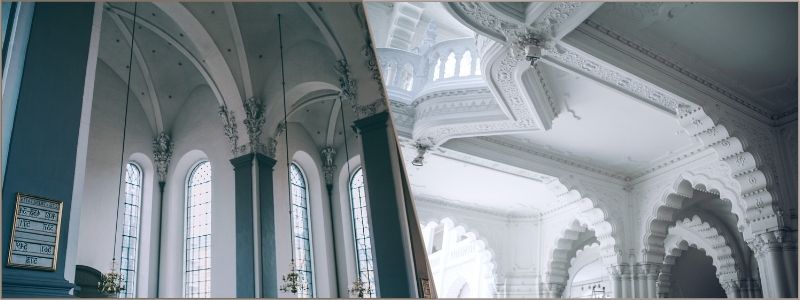
7. Labor cost
This next factor is somewhat familiar and even expected. If more labor is involved, the job will also be more expensive. Jobs that involve several renders, or those with increased complexities or details, will naturally be more labor-intensive.
One crucial aspect of labor involves how complex it will be for the 3D artists to understand the plan of the client’s project and meet their envisioned expectations.
RELATED: How much interior rendering services cost with 3D visualization firms
In general, the total price of the service will potentially be lower if:
- The client can properly and clearly communicate their plans
- Submit more files with more specific details
- Present a more comprehensive project brief
- Provide images with information and ideas about the styles required.
Some clients go as far as giving models that the 3D artists can follow. However, the 3D artists will have to figure out more things when the client gives fewer resources or is unclear. They may even need to make more tweaks, resulting in increased costs.
It is important to remember that interior 3D rendering is not always direct and straightforward. The project can be pricey and encompasses modeling, lighting, texturing, cameras, and post-processing.
There might be instances when scenes that seem complex are actually simple and easy to render. However, in some cases, things may appear simple but are more complex. It is essential to ask questions and do your homework. It will help you understand the entire process and better understand the pricing involved.
8. Level and amount of detailing
The specific level of detail necessary for an interior 3D rendering project can also significantly impact the overall cost. The artist must exert more effort and time on specific lighting required with several views, rendering of particular furniture pieces, and a more detailed interior façade.
There are also some renderings where the builders ask the architect to provide custom-modeled fixtures and furniture as an element of the design presentation. In addition, detailed flooring, ceiling design, wall fixtures, and any fabrics used in the design drawing will also need to be rendered, thus consuming more time.
These elements will have to be modeled in 3D geometry before they are rendered with the proper lighting, finishes, and so forth to achieve a more lifelike feel.
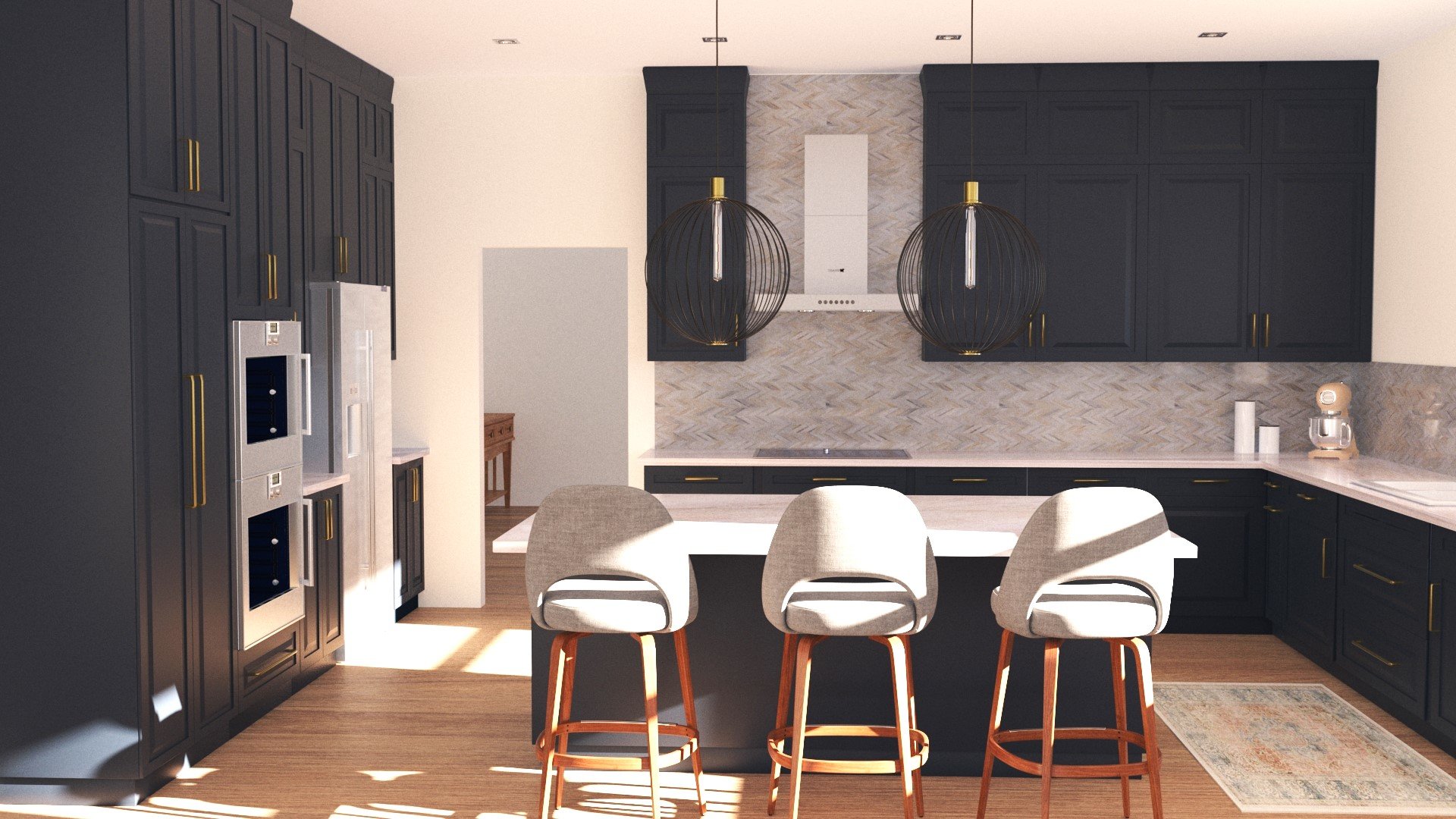
9. Number of details in the project brief
The specific number of details the client specified can affect the cost of interior 3D rendering. Some clients provide very exact instructions for designing the renderings.
For instance, the client might provide fabric samples for every pillow on each sofa in the living room. They can also offer several references to help the artist convey a specific atmosphere.
However, some clients provide details on just a few elements of the order, leaving the rest up to the imagination and creativity of the 3D rendering artist.
The general rule of thumb is that the price of interior 3D rendering will vary in these cases. When the clients have more requirements, they will also become more demanding about the project’s outcome. When this happens, 3D artists will have to spend additional time catering to the clients’ expectations. As a result, the final price of the service will be notably higher.
10. Number of views
A room can be seen from all angles with the help of interior 3D rendering. However, each one of these views is made as a separate or individual CG rendering. If the client wants to show more angles, the cost will increase.
This means that clients can save more money by ordering fewer CGI views. It makes sense to consider the number of renderings that are actually necessary to showcase a project at its finest.
Less doesn’t always mean worse, and it is often sufficient to use just a few views to present the design and all its aspects. Either way, you can expect the interior 3D renderings to be high quality and stunning.
11. Size of the project
Size is probably one of the key factors that can determine the total cost of an interior rendering project. A larger size will mean a higher price. The cost will also hike up if the rendering scope includes an extensive periphery of the interior area, with all fixtures and furniture of different shapes and sizes.
Large-sized projects are not simple and easy to make; hence their development needs more effort and time. These interior 3D renderings must be highly photorealistic, depicting the correct design theme to help the target audience make the right and favorable decision.
RELATED: 5 Tips to get the most out of your interior design service
12. Quality
The project will be pricier when the artist has exceptional skills, and the 3D renders are of high quality. It is all about the labor and time involved.
A skilled artist will make more tweaks and tests to the project to achieve the highest quality of images and ensure that the lighting is also perfect. Through these, the image will look more realistic, notably increasing the final cost of the interior 3D rendering.
13. Rendering environment
Aside from the style and area, the cost of interior 3D rendering will also vary depending on the rendering environment. It usually comprises the camera view, scenes, night and day settings, lighting, real-time settings with the rendered model, photorealism, etc. The rendering cost also increases if several camera angles must be set up. A bird’s eye view will always be more expensive than other views.
There are also specific 3D rendering services such as photomontage that are time-consuming and require lots of effort. A photomontage lets you place the rendered space on the live site and change the interiors accordingly.
14. Number and size of orders
When the client has large projects and requires several renders, most 3D artists or companies often offer discounts. These professionals are always open to discussion about opportunities for long-term partnerships.
Since they are interested in cooperation that will benefit them and their clients, they are often accommodating to offer discounts to regular customers who place large or bulk orders.
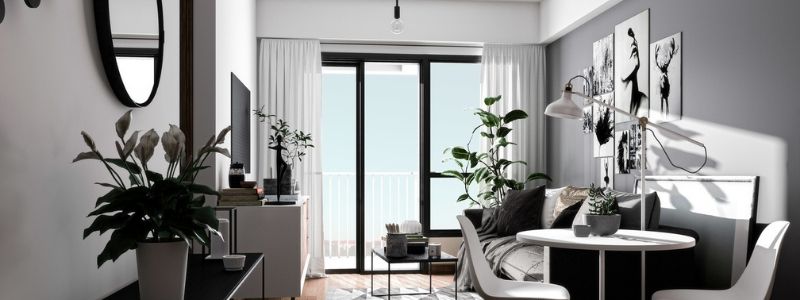
15. Expertise and skills of the 3D artist
The quality of visual images can easily make or break a business. To ensure that you get the highest quality of images, you need to hire a reliable team of highly skilled and experienced professionals.
Obviously, the resulting price will be higher, but you will have peace of mind knowing that what you get will be money worth spending. These high-quality images can bring more significant value than the price you will pay for the service.
To make the most out of your investment for any interior visual imagery, make sure that you list down all the potential 3D artists you plan to hire. Be sure to assess their skills and confirm whether they actually deserve their set price or not. If your first choice with the best skills has prices beyond your budget, you should go for the second-best on the list.
16. Technical infrastructure and software cost
There are specific plug-ins and software that can create high-quality interior 3D renderings. Some software programs are used to develop photorealistic 3D renderings. However, these programs can be quite costly and require annual updates.
Artists also need top-of-the-line rendering machines to provide the best 3D rendering services. This equipment comes with graphics cards, a fast processor, and other features that help them create lifelike renderings. These machines are expensive, and the maintenance costs can get exceptionally high.
Rendering machines require an upgrade every two or three years, depending on the software updates and changing techniques for rendering.
RELATED: Best 3D rendering software used for 3D product rendering at 3D design firms
17. Specifics of the room
The specifics of the room shown on the renderings will also affect the total cost, often dependent on the complexity and size of the architecture.
When the space is bigger and more complex, the price will be higher. For instance, the cost of an interior 3D rendering of a basic room with standard windows and doors will be notably lower compared to a room with more innovative elements.
For example, visualizing a restaurant hall is entirely different from visualizing a small bedroom. The spaces can vary drastically in terms of complexity and size. Therefore, the price for the latter will naturally be much lower.
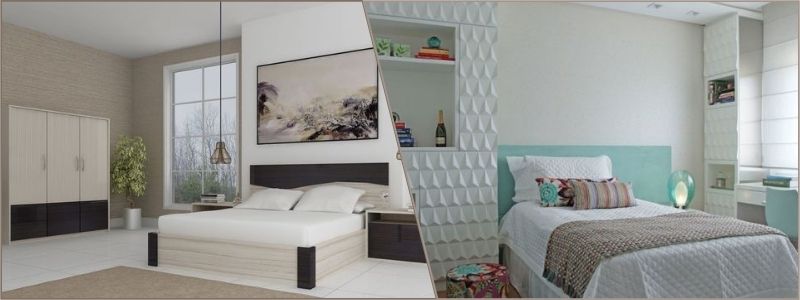
18. Number of images
Every scene in an interior rendering can show visual images or videos. The more scenes that need to be created, the higher the project’s cost.
If your goal is to present every nook and corner of the project, make sure you confirm first whether your budget allows this. If your budget is tight, you might want to set your priorities and determine the specific parts of the building or structure that you want to visualize.
Select the most effective angles to showcase the most crucial areas of your design. Also, see to it that these really are the most important. Only a couple of great images can sometimes be better than several with lower quality because of an unclear view or a faint image.
19. Number of décor and furniture pieces
Interior 3D rendering costs can vary depending on the number of elements included in the room’s overall design, and it will also depend on how complex these specific elements are.
If the project has more décor and furniture pieces, the 3D artist will have to do more work. It means that the price of the service will automatically increase.
20. Simplicity or complexity of the project design
If the project’s design is more complex, the display will need more elements, increasing the cost of visualizations. As expected, the interior renderings of a small home will be cheaper and easier than that of a large city mall.
The complexity of the design is one of the price factors that you can never compromise on. It is essential to optimize your budget accordingly and avoid simplifying a single 3D model, as this might lead to inaccurate images.
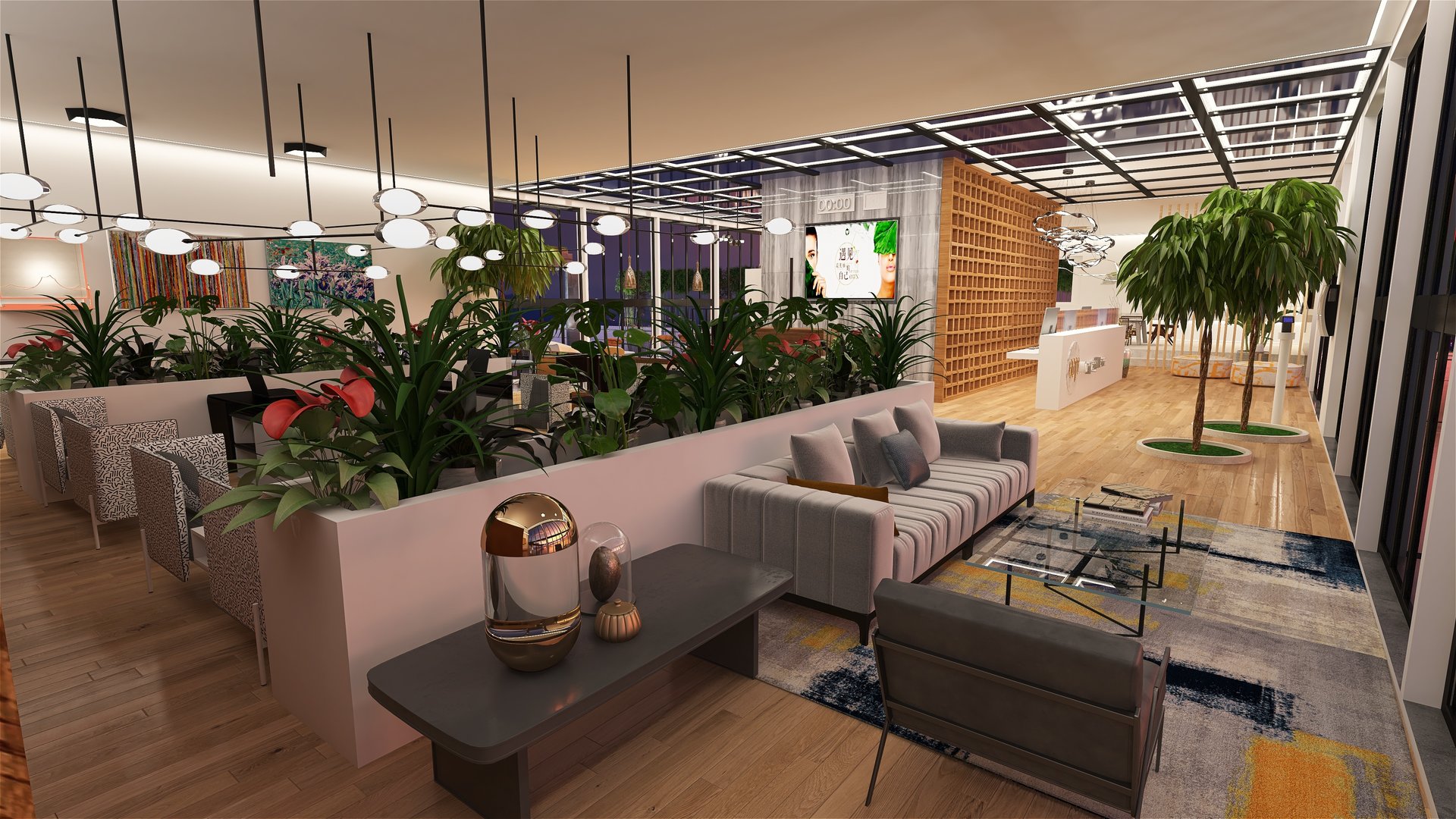
RELATED: 3D Rendering costs & 3D visualization prices for firms
21. Time spent on the project
Aside from labor, the company’s amount of time to use its tools and equipment to render your project is another crucial factor. It can significantly increase its operating costs.
The specific amount of time required for rendering the images is directly proportional to how realistic they are and their size. It is only natural that higher-quality images will take longer and use more powerful computers because more pixels will be used to process the data.
The resolution of the images, the complexity of shapes, the number of details, variability of the lighting conditions, etc., can all increase the rendering time. However, clients can cut the rendering time by limiting the revisions they need. To reduce these revisions, the best thing to do is communicate every detail well, provide comprehensive plans, and respectfully provide detailed feedback.
Strict deadlines where teams are required to work long hours can also increase the project’s price, and the quality might suffer if there are urgent deadlines. That is why giving artists enough time to work might be the wisest decision that clients can make in cases like this.
The bottom line
At the end of the day, there is no such thing as a fixed or definite interior 3D rendering cost. The final price will depend on many factors, from the additional features to the time required for rendering.
Hiring an interior designer for your individual needs is exciting, and it helps you transform your home from a blank canvas into something fresh and extraordinary. Cad Crowd’s freelance interior designers can assist. Contact us for a free quote.
